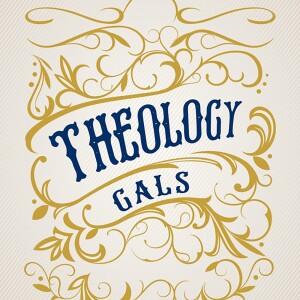
The Importance of Understanding Law and Gospel
 2020-01-06
2020-01-06
Download
Right click and do "save link as"
Theology Gals | Episode 142
This week Coleen and Rachel talk about the importance of law and gospel. They also show the emphasis on law and gospel in the Reformed Faith.
Episode Resources:
Law, Gospel, And The Three Uses of the Law (1) by R. Scott Clark
Law, Gospel, And The Three Uses Of The Law (2) by R. Scott Clark
The Three Uses of the Law by R. Scott Clark
Law and Gospel by Michael Horton
Concerns About The Rhetoric: “X Is A Gospel Issue” by R. Scott Clark
The Indicative and The Imperative A Reformation View of Sanctification by Michael Horton
Calvin on Law and Gospel by Michael Horton
Heidelberg Catechism
Chapter 1 Part 1: The Law-Gospel Distinction Lane Keister
Is the Law/Gospel Distinction Only Lutheran? Part 2
Law and Gospel quotes
Calvin
Further, because Paul seems to abrogate the Law, as if now-a-days it did not concern believers, we must now see how far this is the case…he does not treat of the Law in the abstract, but sets it forth invested with those of its qualities, wherein it is opposed to the Gospel; for, inasmuch as his controversy was with those who interpreted it amiss, he could not help contrasting the Law with the Gospel, as if they were in opposition to each other: not that they were really so, if their respective doctrine be dextrously applied to its proper object, but because such a conflict arose from the absurd mixture, which the false apostles introduced. They asserted that men are justified by the works of the Law, and, if this were admitted, the righteousness of faith was destroyed, and the Gospel fell to the ground. They, moreover, restored the yoke imposed on the ancient people, as if no liberty had been obtained by the blood of Christ. In this discussion it was necessary for Paul to advert only to that which is peculiar to Moses, and distinct from Christ; for although Christ and Moses perfectly accord in the substance of their doctrine, still, when they are compared with each other, it is fitting to distinguish what is peculiar to each. Calvin’s Commentaries (Commentaries on the Last Four Books of Moses 3:199-200)
John Owen
The order, relation, and use of the law and the gospel do uncontrollably evince the necessity of this conviction previous unto believing. for that which any man hath first to deal withal, with respect unto his eternal condition, both naturally and by God’s institution, is the law. This is first presented unto the soul with its terms of righteousness and life, and with its curse in case of failure. Without this the gospel cannot be understood, nor the grace of it duly valued. For it is the revelation of God’s way for the relieving the souls of men from the sentence and curse of the law, Rom. 1:17. That was the nature, that was the use and end of the first promise, and of the whole work of God’s grace revealed in all the ensuing promises, or in the whole gospel. Wherefore, the faith which we treat of being evangelical,- that which, in its especial nature and use, not the law but the gospel requireth, that which hath the gospel for its principle, rule, and object,- it is not required of us, cannot be acted by us, but on a supposition of the work and effect of the law in the conviction of sin, by giving the knowledge of it, a sense of its guilt, and the state of the sinner on the account thereof.
John Bunyan
If there be the terror, horror, and severity of the law discovered to a people by the servants of Jesus Christ, though they do not speak of it to the end people should trust to it, by relying on it as it is a covenant of works; but rather that they should be driven further from that covenant, even to embrace the tenders and privileges of the second, yet, poor souls, because they are unacquainted with the natures of these two covenants, or either of them, therefore, say they, ‘Here is nothing but preaching of the law, thundering of the law;’ when, alas, if these two be not held forth-to wit,
view more
More Episodes
The Sabbath | Episode 63
 2018-05-21
2018-05-21
 2018-05-21
2018-05-21
The Law | Episode 49
 2018-05-16
2018-05-16
 2018-05-16
2018-05-16
Prayer | Episode 60
 2018-04-30
2018-04-30
 2018-04-30
2018-04-30
Finding a Church | Episode 59
 2018-04-23
2018-04-23
 2018-04-23
2018-04-23
Special Announcement | Theology Gals
 2018-01-24
2018-01-24
 2018-01-24
2018-01-24
012345678910111213141516171819
Create your
podcast in
minutes
- Full-featured podcast site
- Unlimited storage and bandwidth
- Comprehensive podcast stats
- Distribute to Apple Podcasts, Spotify, and more
- Make money with your podcast
It is Free
- Privacy Policy
- Cookie Policy
- Terms of Use
- Consent Preferences
- Copyright © 2015-2024 Podbean.com


